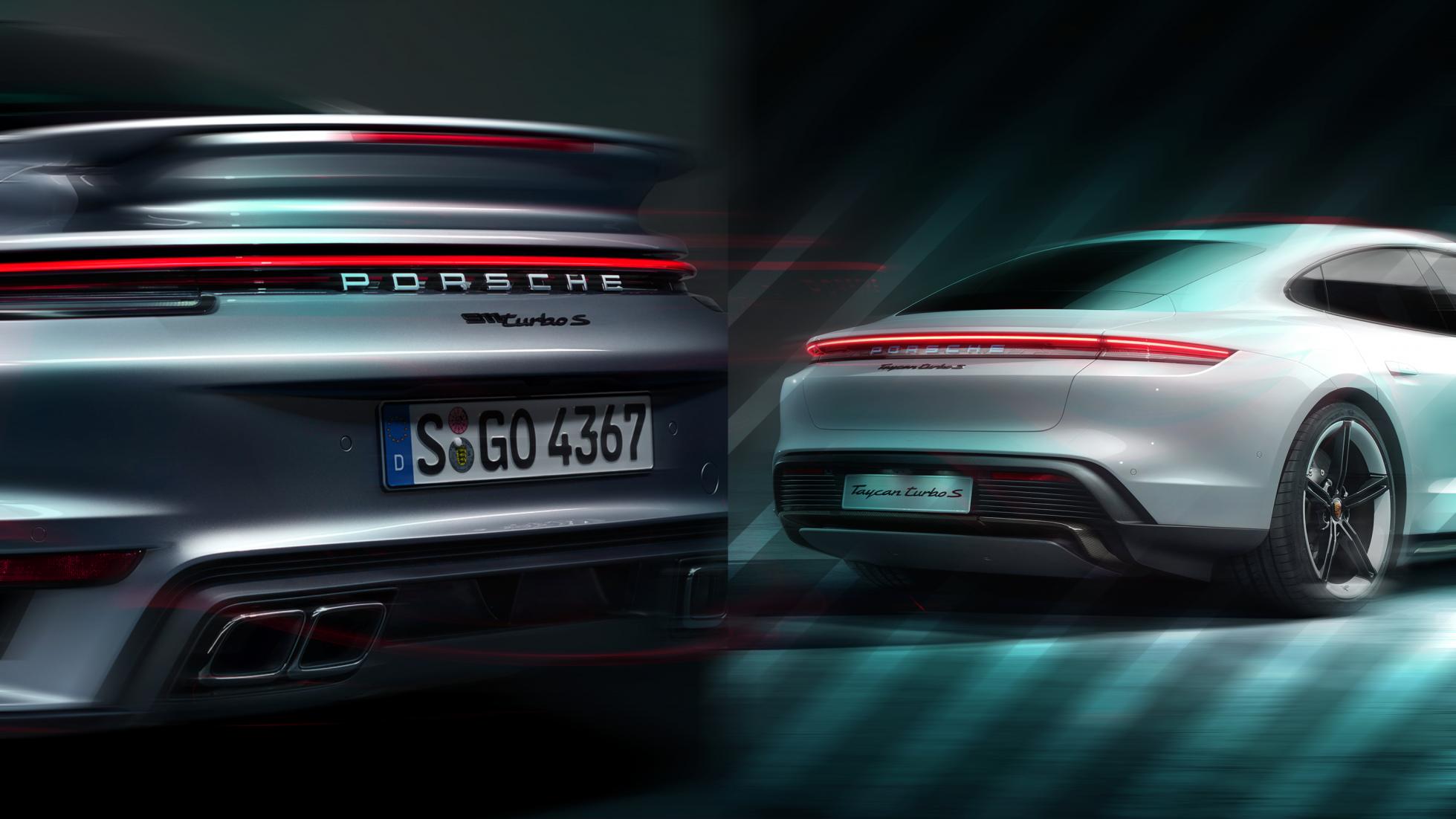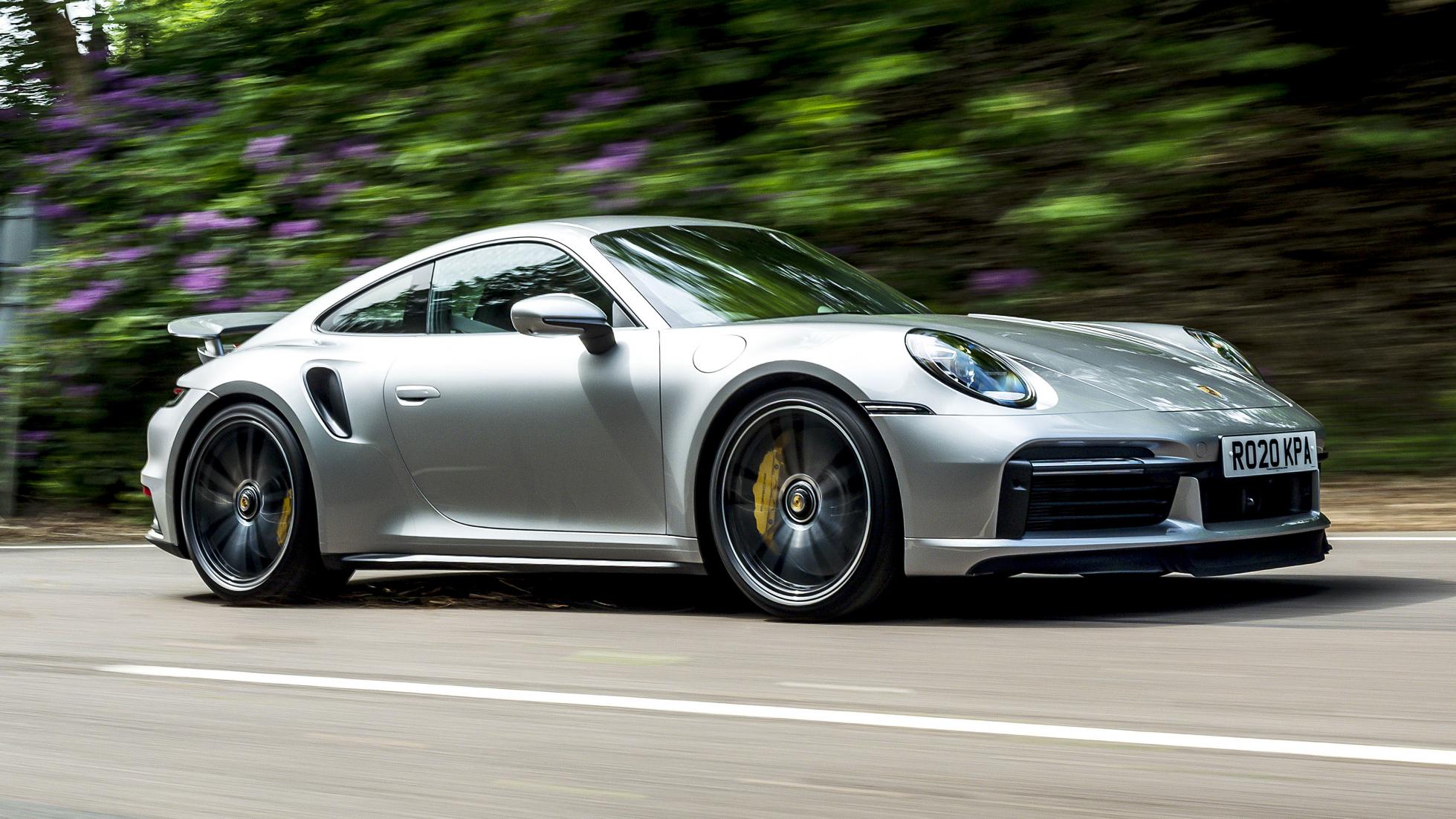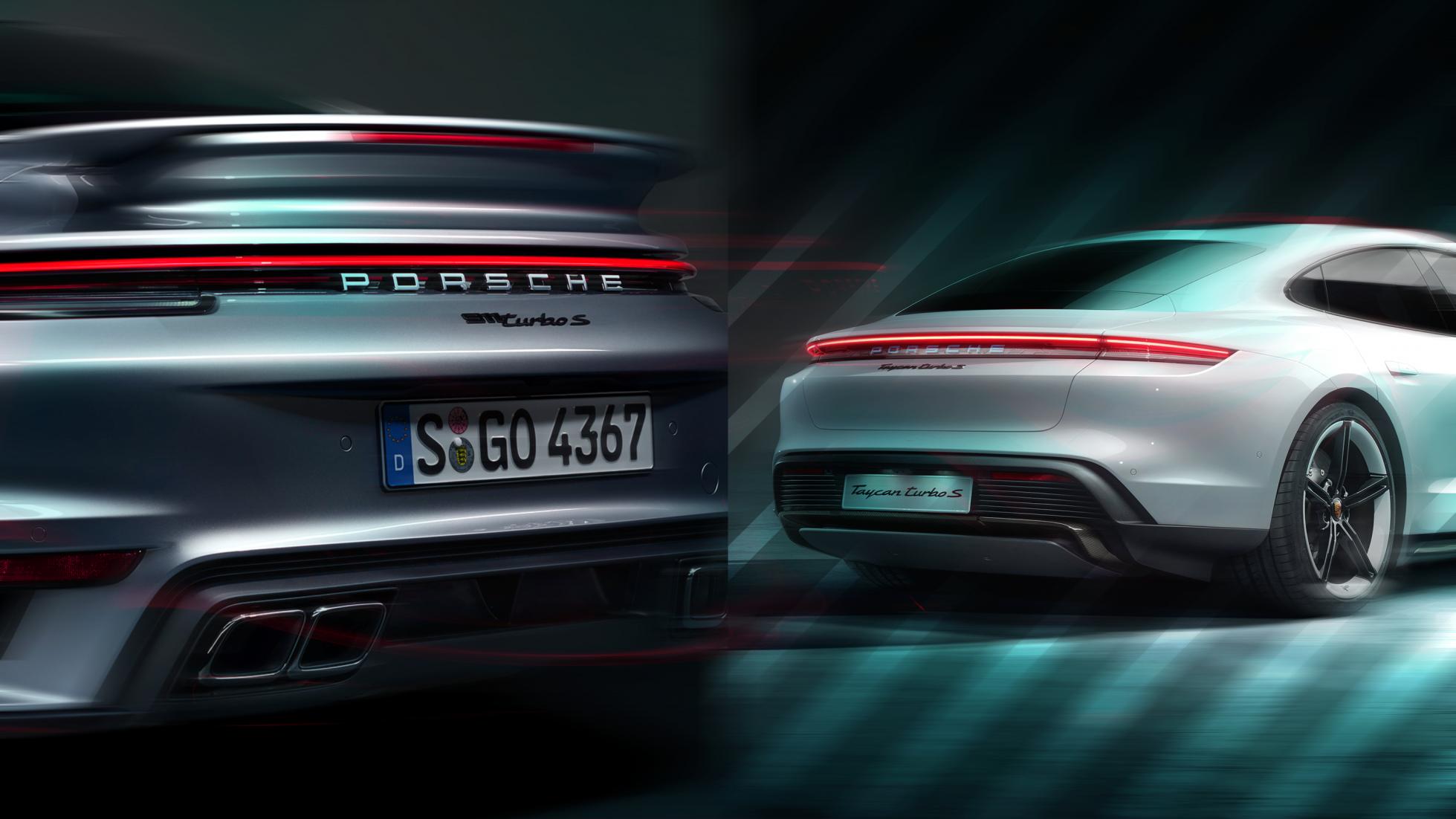
A Porsche head-to-head for you today. Which is the fastest road car the firm builds? The thumping twin turbo petrol power of the new 911 Turbo S, or the new age tech of the twin-motor Taycan Turbo S which, of course, contains not a single actual turbo?
The raw stats are as follows. The Taycan’s twin motors produce 751bhp and 1,049Nm. The 911 needs a whole lot more plumbing to deliver a whole lot less power: 641bhp and 800Nm. But that plumbing doesn’t weigh much. The whole car comes in at 1,640kg. If the Taycan didn’t have to haul around a 93.4kwh battery pack it wouldn’t weigh 2,295kg, but since it does, its disadvantage is a colossal 655kg. And that means for the crucial drag race power-to-weight ratio the Taycan is at a disadvantage: 327bhp/tonne plays 397, and 457Nm/tonne plays 488.
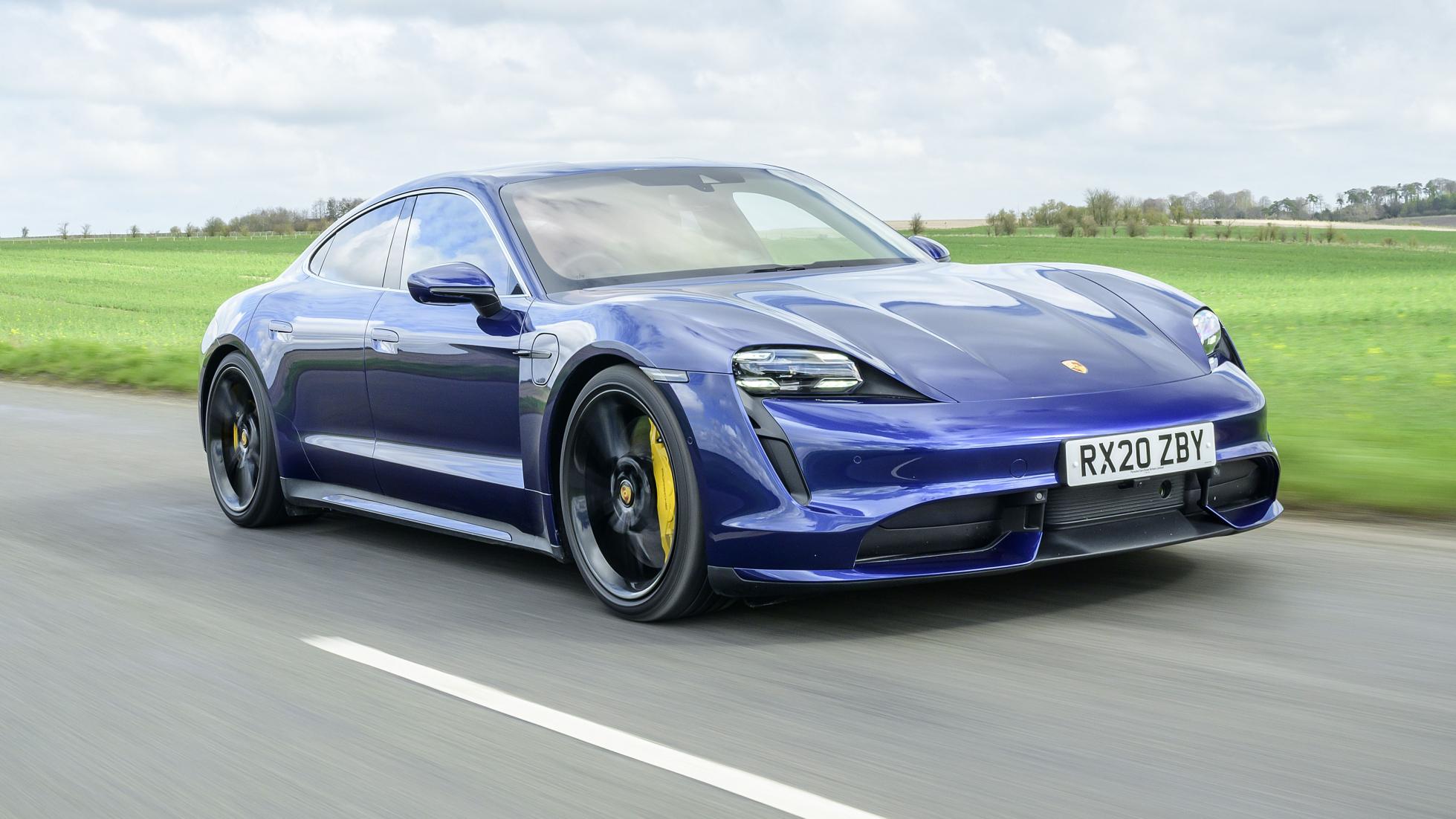
But electric cars deliver all their power, all the time. Yes, the Taycan has a two-speed gearbox on the rear axle to maximise launch, but aside from that little electric blip (and Porsche wouldn’t have done it if it didn’t make the car faster) there is no complication or interruption in the Taycan’s drivetrain. The 911 has a powerband. Max torque is only available from 2,500-4,000rpm, and that doesn’t coincide with maximum power which arrives at 6,750rpm, when the redline is only 250rpm away. There’s also the small matter of eight gears to be dealt with, even if each is only a minor interruption when there are two clutches to swap them in and out.
Enough geekery, on with the numbers. You’ll find the full table at the bottom, but that doesn’t tell the story of how they launch. Both have immaculate launch control systems. No wheelspin, just a tension in the drivetrain, a smack as the headrest punts into the back of your head, an involuntary yelp as you depart and a gasp at how fast the numbers grow bigger.
They are, up to a point (that point being about 90mph, or 145kph), identically fast. Nothing, not even a Dodge Demon at a drag strip, has hit 30mph (48kph) faster than the Turbo S. You’re there 1.15secs after lift-off. The Taycan takes more to get the weight moving, but it’s only a tenth of a second behind (and ahead of many other big 4WD hitters, including the Lamborghini Huracán Evo). That solitary tenth of a second then separates them all the way to *80mph (129kph).
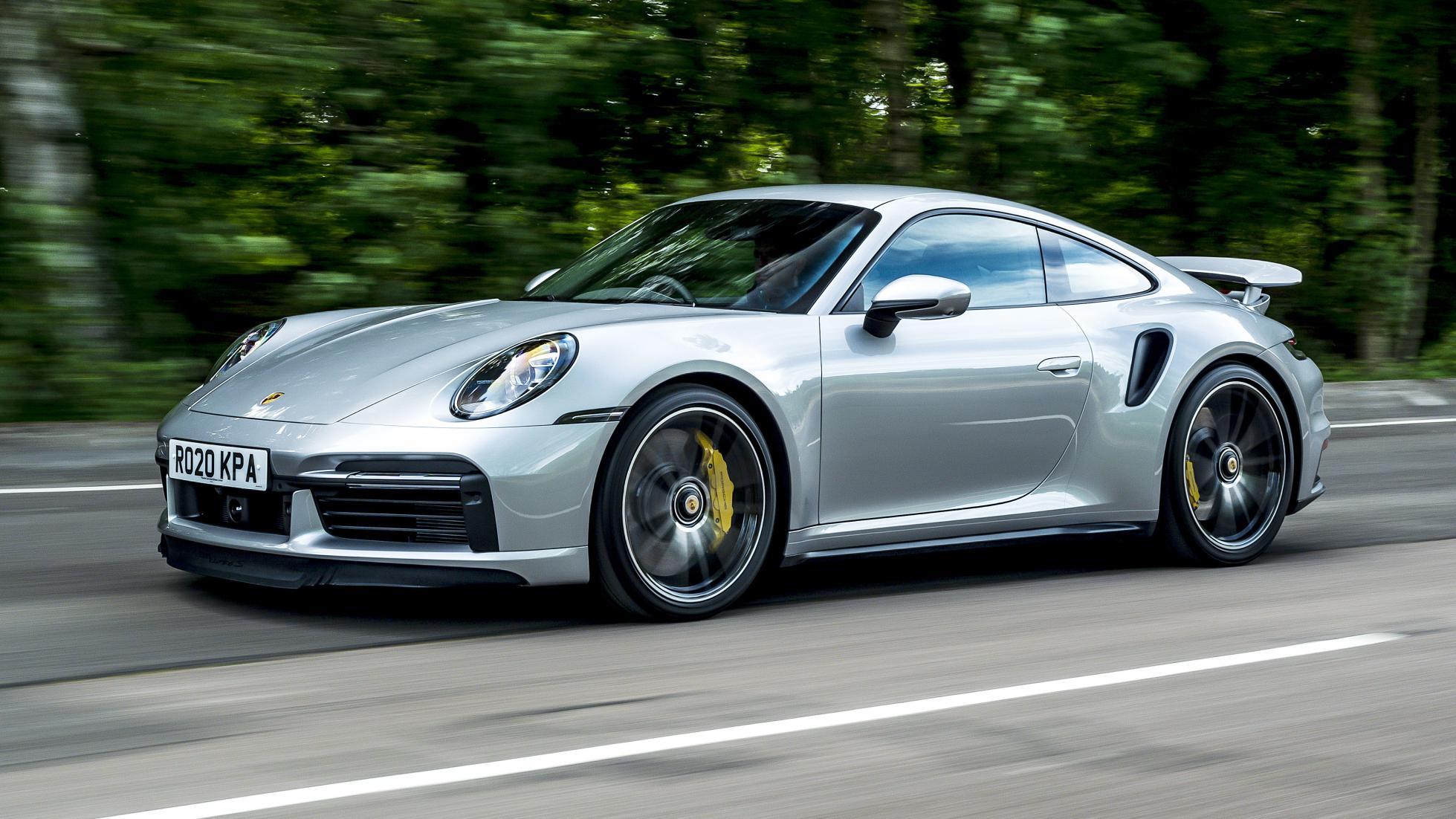
I still reckon the best indicator of real world usable performance is 30-70mph (48-113kph). The Taycan wins that, by a solitary hundredth of a second: 2.02 plays 2.03secs. But get your head around that! Two brief little seconds pile on 40mph (64kph). Astonishing. Now, in the actual real world, the 911 would be struggling to keep the Taycan in view. Driving along at a steady 30mph (48kph) in an electric car you get immediate, instant thrust, while the petrol, unless the driver likes holding second gear, is going to have to kick down first.
The 911’s real advantage happens much higher up, in the realm beyond British and almost all international speed limits. From 60mph (97kph) to 130mph (209kph) the 911 Turbo S is 1.3secs ahead. And, in the grand scheme of fast cars, it’s already done its best. Pretty much every McLaren, including the new GT, is quicker, so are the Ferrari 488 and 812. Up there, the 911 Turbo is merely on par. But the electric Taycan is starting to fizzle out, now back running with the Ferrari Portofino and BMW M5s of this world. It takes a third of a second longer to break the quarter mile tape. Still, 10.69secs at 131.6mph (211.7kph) isn’t slow.
And this is what’s important to remember. These two Porsches are among the very fastest cars we’ve ever tested. The latest Audi RS3 is blisteringly quick, but it takes four seconds longer than the Taycan to do 60-130mph (97-209kph), it’s 14mph (23kph) slower at the end of the ¼ mile. Anyway, here’s the full figures. Have a dig into them, add a comment at the bottom.
|
|
911 Turbo S | Taycan Turbo S |
|
0-10mph (0-16kph) |
0.42s | 0.41s |
|
0-20mph (0-32kph) |
0.80s | 0.85s |
|
0-30mph (0-48kph) |
1.15s | 1.26s |
|
0-40mph (0-64kph) |
1.57s | 1.67s |
|
0-50mph (0-80kph) |
2.05s | 2.14s |
|
0-60mph (0-97kph) |
2.53s | 2.61s |
|
0-70mph (0-113kph) |
3.18s | 3.28s |
|
0-80 (0-129kph) |
3.84s | 4.08s |
|
0-90 (0-145kph) |
4.59s | 5.03s |
|
0-100mph (0-161kph) |
5.56s | 6.12s |
|
0-110 (0-177kph) |
6.68s | 7.35s |
|
0-120mph (0-193kph) |
7.84s | 8.80s |
|
0-130mph (0-209kph) |
9.29s | 10.62s |
|
0-140mph (0-225kph) |
11.05s | 12.77s |
|
0-150 (0-241kph) |
13.12s | - |
|
30-70mph (48-113kph) |
2.03s | 2.02s |
|
60-130 (97-209kph) |
6.76s | 8.01s |
|
¼ mile (402 metres) |
10.40secs @ 136.8mph (220.2kph) |
10.69secs @ 131.6mph (211.8kph) |
|
100-0mph (161-0kph) |
80.75 metres | 84.54 metres |
